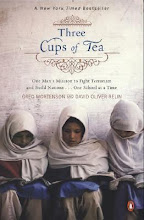 The July Featured Book of the Month, the Sweetness at the Bottom of the Pie, is unlike most detective stories, being told from the perspective of an eleven year old girl who has a passion for poison! Flavia de Luce is a chemistry loving, bicycle riding, spirited and intelligent girl who stumbles upon peculiar events. Set in the 1950s, Flavia starts out her summer in an English village fighting with her two older sisters and brewing dangerous potions in her secret laboratory. Suddenly, life takes an unusual turn when a dead bird appears on their doorstep with a bright orange stamp on its beak. A strange red-headed man has an argument with her father and the next morning Flavia discovers the unknown man dying in their cucumber patch. Young girls would normally be frightened of a murder committed outside their own home, but Flavia’s interest burns with curiosity. “I wish I could say I was afraid, but I wasn’t. Quite the contrary. This was by far the most interesting thing that had ever happened to me in my entire life.” The summer starts to look very promising to Flavia and she is determined to solve this murky mystery!
The July Featured Book of the Month, the Sweetness at the Bottom of the Pie, is unlike most detective stories, being told from the perspective of an eleven year old girl who has a passion for poison! Flavia de Luce is a chemistry loving, bicycle riding, spirited and intelligent girl who stumbles upon peculiar events. Set in the 1950s, Flavia starts out her summer in an English village fighting with her two older sisters and brewing dangerous potions in her secret laboratory. Suddenly, life takes an unusual turn when a dead bird appears on their doorstep with a bright orange stamp on its beak. A strange red-headed man has an argument with her father and the next morning Flavia discovers the unknown man dying in their cucumber patch. Young girls would normally be frightened of a murder committed outside their own home, but Flavia’s interest burns with curiosity. “I wish I could say I was afraid, but I wasn’t. Quite the contrary. This was by far the most interesting thing that had ever happened to me in my entire life.” The summer starts to look very promising to Flavia and she is determined to solve this murky mystery!Alan Bradley presents a young heroine who is an engaging, quick-witted, and fearless sleuth. Winner of the 2007 Crime Writers’ Association Debut Dagger, this inventive detective story is a delightful read with many twists and turns.
Awards:
Winner of the 2007 - Crime Writers’ Association Debut Dagger
Winner of the 2009 - Arthur Ellis Award for Best First Novel
Read an excerpt from NPR’s website
Check out the international versions of the book covers!
Created with Admarket's flickrSLiDR.
Here is a trailer to promote the book:






